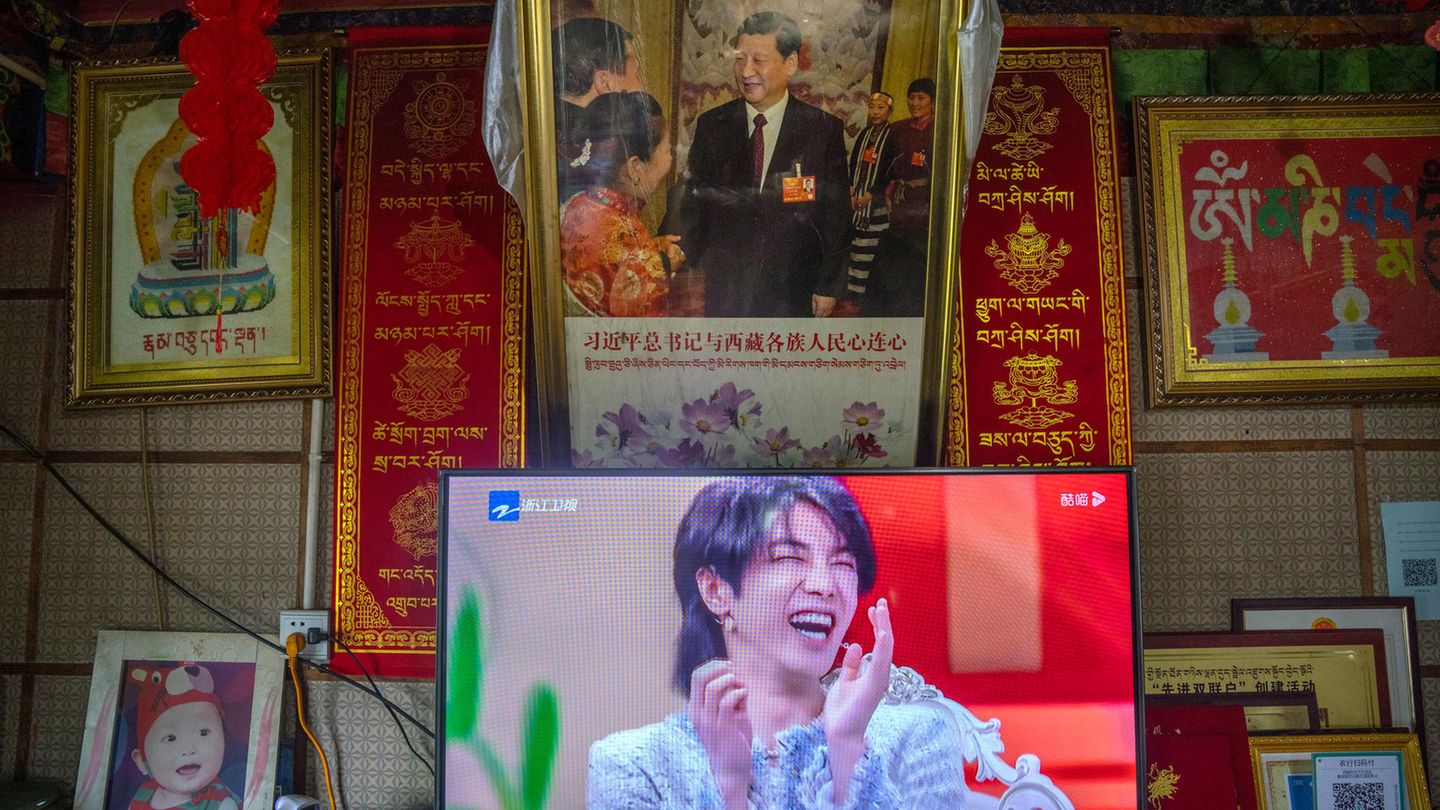The Chinese leadership is bringing television even more party line. In the future, “effeminate men” will no longer be allowed to be shown on TV, as will reality TV shows. The government is tying in with a large number of restrictions in the past few days.
First the film industry, then school lessons and now the entertainment industry in the form of reality shows, actors and influencers: the Chinese government is taking ever more restrictive measures against formats that deviate from the line of the Communist Party of China around head of state and party leader Xi Jinping. The state television and radio administration (NRTA) called on TV providers on Thursday to stop showing male actors “with a feminine style and abnormal aesthetics” on television. Instead, men should now be seen with a clear, masculine charisma. Therefore, the selection of actors should be carefully controlled by the state in the future, as well as the level of salaries. An end to “effeminate men” should be put to an end on television, according to the order in which, according to “Tagesschau”, the actors are also insulted as “Niang Pao” (in German, for example, “girls’ pistols”).
Artists with “incorrect political positions” are also excluded from the programs. The television stations should adhere to “political quality, moral character and artistic standards as selection criteria”. Under no circumstances should people be shown “whose political views are incorrect”. A “patriotic, virtuous and artistic ethos” should be created in the entertainment industry. According to the “Redaktionsnetzwerk Deutschland”, numerous online appearances of pop stars who smoked a joint or raised a politically sensitive topic have already been deleted in the past few weeks.
The traditional image of men should be strengthened
But that’s not all for state regulation: Variety and reality shows are also banned from the TV screen, as are formats in which alleged hero figures are created. For some time now, China has been fighting an “immoral” pop culture that Beijing says is leading young people astray. Talent shows, in which hundreds of aspiring young people and adults go through tough boot camps and face public votes, are very popular in the People’s Republic. However, there was criticism of obsessive fans and allegedly bad role models. In addition, in view of falling birth rates, Chinese authorities are trying to give young people more traditional ideas about men.
A good two weeks ago, China’s leadership censored the film market in the Chinese special administrative region of Hong Kong. Films that criticize the one-party system or could promote democracy in Hong Kong are to be banned in the future. The National Security Act severely curtailed fundamental rights such as freedom of expression and assembly in the former British colony last year.
China isolates itself and strengthens patriotism
The new rules for TV formats join a multitude of measures that the government has enacted in recent weeks to strengthen patriotism and promote the personality cult around President Xi Jinping. For millions of pupils and students, the school year began on September 1st with a new subject: “Xi Jinping’s Thoughts on Socialism with Chinese Characteristics in the New Era”. According to the decree, the “seeds of love for the party, love for the country and love for socialism” are to be sown in the young minds already in elementary schools. The content is about topics such as “There would be no new China without the Communist Party” or “Protecting national security is a duty of every citizen” Critics spoke of “brainwashing” and the attempt to influence children and de support for the party and to ensure head of state Xi Jinping.
Last week, the Chinese government issued a strict online video game ban for young people. In the future, you will no longer be allowed to gamble online during the week, from Friday to Sunday only for a maximum of one hour a day and only between eight and nine in the evening. With the new regulation, the government wants to “protect the physical and mental health of young people,” wrote the state news agency Xinhua. Weeks ago, a state business newspaper attacked the tech industry and called computer games “opium for the mind”.
Sources: ,
David William is a talented author who has made a name for himself in the world of writing. He is a professional author who writes on a wide range of topics, from general interest to opinion news. David is currently working as a writer at 24 hours worlds where he brings his unique perspective and in-depth research to his articles, making them both informative and engaging.




